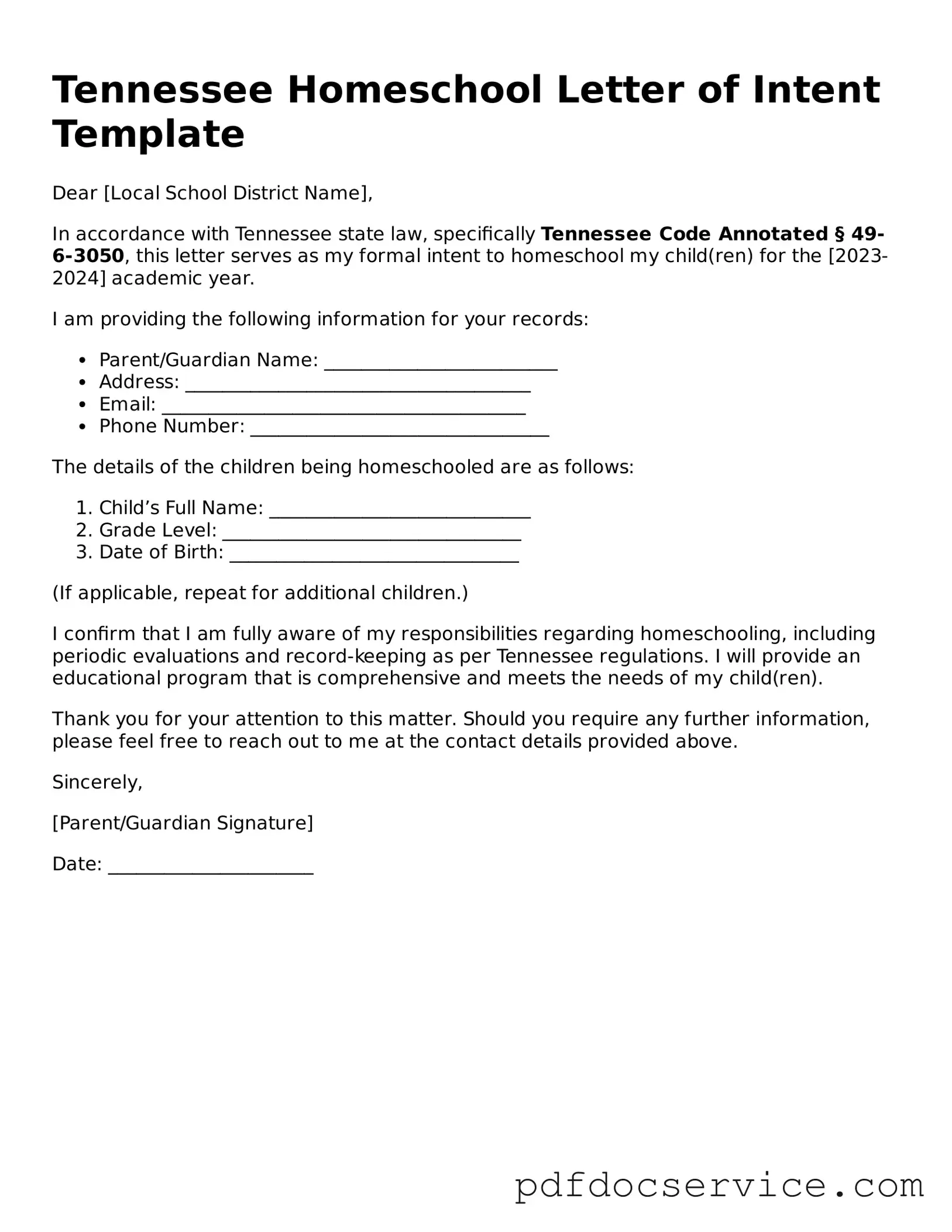What is the Tennessee Homeschool Letter of Intent?
The Tennessee Homeschool Letter of Intent is a formal document that parents or guardians must submit to their local school district when they decide to homeschool their children. This letter notifies the district of the intent to provide home-based education and outlines the basic information about the student and the educational plan.
Who needs to file a Letter of Intent?
Any parent or guardian who wishes to homeschool a child in Tennessee must file a Letter of Intent. This applies to children who are school-age and not currently enrolled in a public or private school. It is important to submit this letter before starting the homeschooling process.
When should I submit the Letter of Intent?
The Letter of Intent should be submitted at least 30 days before the start of your homeschool program. If you are withdrawing a child from a public school, it is advisable to submit the letter as soon as possible to ensure compliance with state regulations.
The Letter of Intent typically requires the following information:
-
Your name and address
-
The name and age of the child or children being homeschooled
-
The date you plan to begin homeschooling
-
A statement of your intent to provide home education
No specific format is mandated by the state. However, it should be clear and concise. Many parents choose to use a simple template that includes all required information. Ensure that the letter is signed and dated.
Where do I send the Letter of Intent?
The Letter of Intent should be sent to the local school district office where your child resides. You can find the contact information for your district on the Tennessee Department of Education's website. It is advisable to send the letter via certified mail to have proof of submission.
What happens after I submit the Letter of Intent?
Once the Letter of Intent is submitted, the local school district will acknowledge receipt. You do not need to wait for approval; you may begin homeschooling as planned. However, keep a copy of the letter for your records.
Do I need to submit a new Letter of Intent every year?
Yes, a new Letter of Intent must be submitted each year to continue homeschooling. This ensures that the school district is aware of your ongoing educational plans. Some districts may have specific deadlines for annual submissions, so check with your local office.
What if I change my mind about homeschooling?
If you decide to stop homeschooling and enroll your child in a public or private school, you do not need to notify the school district about the change. However, it is good practice to inform the district of your decision to ensure a smooth transition for your child.
Are there any penalties for not filing a Letter of Intent?
Yes, failing to file a Letter of Intent may result in legal consequences. Your child could be considered truant, which can lead to fines or other penalties. It is crucial to comply with the state's homeschooling laws to avoid any issues.

